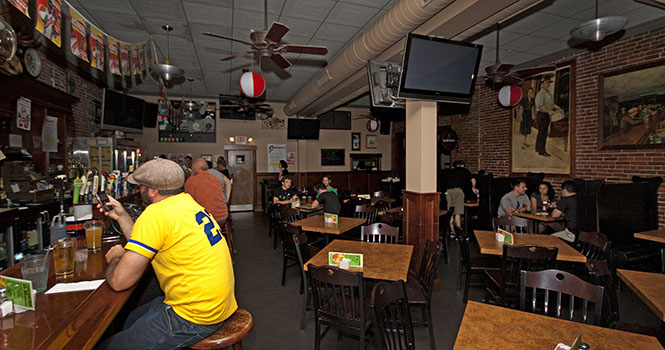City council limiting liquor licenses in Kent
September 17, 2012
Business owners looking to open “dive bars” in Kent may need to keep looking.
Kent’s Community Development Committee passed a motion restricting the movement of more liquor licenses into the city. Now the motion will go to city council to be voted into law.
Dan Smith, Kent’s economic development director, said the city has enough small bars. Now they want to attract more upscale, full-service restaurants.
“I think we need to be very careful about the types of projects that have a high rate of return for the city,” Smith said. “I think it would be a mistake to start handing out liquor licenses to every single project.”
Normally, a limited number of liquor licenses are available based on population and geographic location. While there are no more liquor licenses available using the old “quota system,” Ohio’s Department of Commerce allows surplus liquor licenses (also referred to as TREX licenses) to be transferred to areas with significant economic development – areas like Kent.
D-5I liquor permits are available to businesses investing at least $750,000, occupying 4,000 square feet and receiving less than 25 percent of revenue from alcohol sales. City officials have already issued four D-5I liquor licenses to new restaurants including Bar 145 and Fresco Mexican Grill and Salsa Bar, both of which are involved in the downtown expansion.
However, TREX licenses can be moved into the city following a single public official’s approval. City council is looking to apply the same D-5I requirements to TREX licenses, setting a precedent encouraging larger restaurants to break ground in Kent as opposed to hole-in-the-wall bars.
Because TREX licenses are meant to stimulate economic development, they are also considerably cheaper than other liquor licenses, costing around $2,000 compared to an original D-Class “quota” license, which carries a $35,000 to $50,000 price tag.
Kent has 58 businesses currently receiving 147 different alcohol permits from the state, mostly allowing for the sale of beer and wine. The population-based D-Class permits typically reserved for bars and nightclubs, which allow alcohol to be consumed on premises, are sold out. But eight names remain on the waiting list, eager to capitalize on downtown’s nightlife.
Mike Beder, owner of Water Street Tavern, said he appreciates new businesses bringing crowds downtown, but the TREX licenses could lead to too much of a good thing.
“If these licenses are available to buy, then the value of my liquor license diminishes,” Beder said. “If these bars that are going in now are going to bring more people in town, then I think it will be good. If they’re just saturating the market and aren’t doing anything that will bring more people in, then they’re just hurting everyone else.”
Charlie Thomas, owner of Ray’s Place and a member of the Kent Licenses Beverage Association, said his liquor license was a significant investment, and there are enough bars in Kent already.
Smith said the council’s decision kept current bar owners in mind, recognizing the city owes a reasonable loyalty to individuals holding liquor licenses.
Aside from discouraging dive bars from setting up shop, Smith and William Lillich, director of the public safety department, said restricting liquor licenses is also a matter of safety. The policy protects the city from businesses looking to make a quick buck and police from an overserved — and possibly unruly — downtown crowd.
Still, Smith said the policy allows for some wiggle room. City council can review businesses applying for TREX permits on a case-by-case basis.
“I think the chances that a small project, a bar in a storefront with three or five employees, is not going to be very likely,” Smith said. “But for good projects that are going to hire 40 people, I think council would probably consider allowing some TREX permits to come in if it’s a substantial investment that will generate revenue for the city.”
Contact A.J. Atkinson at [email protected] and contact John Milligan at [email protected].

























